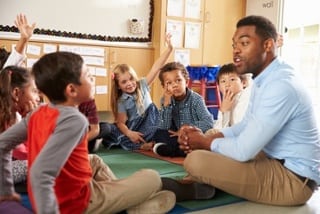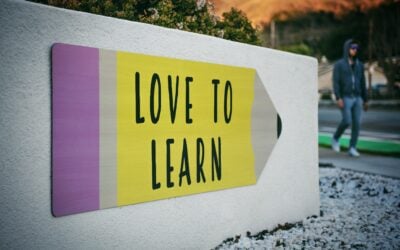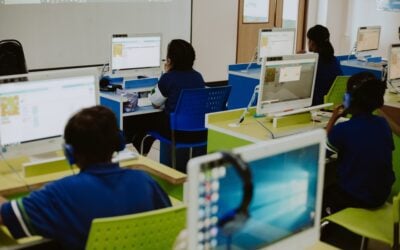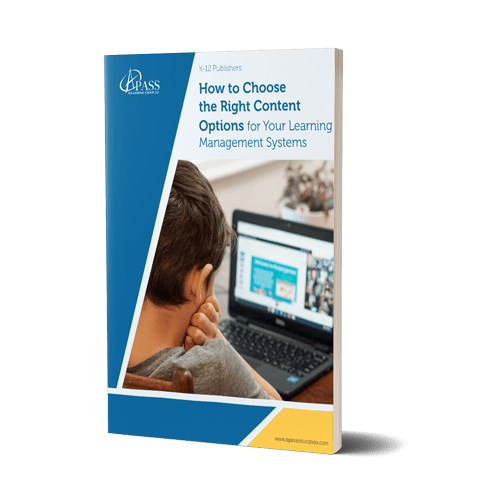Teachers have high hopes for creating open dialogues in their classrooms. They strive to build lessons that incorporate the rich skills of debate and conversations. How can teachers help to improve the communication skills of their students? Here are four strategies for helping to improve communication skills in learning situations and suggestions as to how to teach these strategies to learners.
- Actively listen to what people are saying
Often, listeners think about what they are going to say next in a conversation, as opposed to truly concentrating on what the speaker is saying. The listener might hear a small part of what is being said and begin to formulate their own response. The same can occur in online discussions. Learners might quickly read what somebody else wrote and without a complete understanding begin to formulate their own responses.
In a classroom discussion, teachers can work to make sure this does not happen by teaching active listening skills strategies: showing; modeling; and, encouraging. They can facilitate classroom discussions that establish norms of respectful dialogue.
During substantive dialogue teachers can ask students to summarize what has just been said before making their own contributions. In an online discussion, teachers can ask learners to summarize what has been said in writing before beginning their own responses. When learners develop the skills of listening before responding communication will reach new heights.
- Ask questions and encourage others to ask questions
Many times speakers have not fully thought through what it is that they want to say before saying it. Furthermore, listeners may not understand what the listener is actually saying. Therefore, questions can help both the speaker and the listener. In a safe environment learners will recognize that it is more than acceptable to share incomplete thoughts. Indeed, as people learn together, through asking questions as they learn, they can jointly construct higher and higher quality thoughts.
Questions can be as simple as “Why do you say that?” or “What do you mean by that?” Listeners can also ask, “Did I hear you correct when I thought you said…?”
Through this task of asking questions and listening to the answers, learners will develop a deeper sense of trust and respect for one another.

- Try and put yourselves in the position of others
Some might argue that we live in a world that contains too little respect. Without mutual respect high quality learning through dialogue cannot take place. One way to build this respect is by recognizing that each person matters. All people deserve an equal chance to be heard and understood. It’s really easy for one to say that he disagrees with another; but shouldn’t he try and understand the other before disagreeing?
There’s an old adage that in order to truly understand another, one must put himself into the shoes of the other. To fully do this, you must have had the same experiences as the other. No two people have had the same exact set of experiences, consequently, it is impossible to fully understand the way that another person looks at the world.
To help learners see the world as others see it, teachers can ask learners why they think that somebody else might have said something that they said. Truly challenge the learners to put themselves into the shoes of the other. Why do you think that Johnny said this? Why might it make sense to believe this? Teachers could also ask learners to explain why literary characters act as they do. When teaching soft skills in the corporate environment, learners could be asked to explain why characters in simulations behave as they do.

- Sometimes it’s important to agree to disagree
Of course, sometimes it will be impossible for two people to agree. Their experiences and opinions are so divergent that they will disagree on important issues. In fact, understanding not agreement should probably be the goal of most conversations. In those situations when agreement will not be reached, it is best to say, “Let’s agree to disagree.”
Educators can model this behavior with their own students and by sharing experiences that they have had in their own lives when they did this.
A recent Edutopia article on this topic concluded by asking three powerful questions:
- Is teaching cognitive strategies, like effective listening, part of your school’s curriculum?
- What would happen to learning in your classroom if students became more effective listeners?
We can add:
- What would happen to the productivity of your workplace if employees become more effective listeners?
- Are effective listening skills part of professional development plans?





